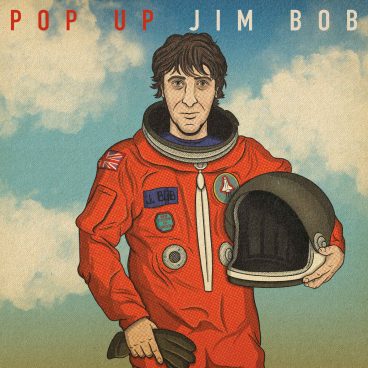Speak My Mind is the protest song equivalent to one of those internet "unboxing" videos, except that instead of a first look at the new iPhone, it's an unexpurgated reaction to the news that your fellow citizens have elected a leader who not only fails to represent your values but is in fact a very real threat to your way of life and the people you care about.
It's that OMG moment when your head is fit to burst with anger at the impossible injustice of it all and your mouth is overspilling with all the reasons why what has happened is upsetting and wrong.
"Speak My Mind was written the day after the presidential election," says Rue. "It is in response to the tone Donald Trump employed during his campaign (and subsequently after). It acknowledges the racism and misogyny in the Alt Right and asks the question 'What do you say to kids?' when the language coming out of the White House ridicules minorities, women, and the disabled."
The phrase "speak my mind" strikes a chord with me. I'm picturing a particularly hatchet-faced white person attempting to justify the ignorant, hateful and insensitive language they're spouting and I think it goes along with a misguided assumption that the so-called silent majority thinks the same thing but is too spineless to admit it.
"This song was actually written about my hometown in Pennsylvania," Rue told me, "and the thousands of people who live there that purport to be Christians yet supported a candidate (now President) who was (is) openly hostile to women, racial minorities, and disabled people, and who selected a vice president that is hateful towards homosexuals and transgender people. There is a sign heading into my hometown that reads, 'Butler - A Church going Community'. Yet this town in Pennsylvania was one of the essential pieces that turned the state over to Donald Trump in the election. This group of religious, mostly working class folks voted in droves for a person who jokes about repeatedly sexually assaulting women and has ties to the KKK. But you know, they love Jesus so it's cool."
Given that this song is about waking up to discover that your compatriots have let you down by voting for someone you consider utterly abhorrent, I asked Rue what part protest singers and songwriters can play in political debate? Is he just preaching to the choir?
"I think the songwriter's burden/job is similar to that of the philosopher," he says. "Raise questions. I don't have answers. Everyone has a voice, though, and in a democracy everyone has a right to speak the fuck UP. There's a debate going on in America now about professional athletes using their position to draw attention to racial injustice and police brutality. African American athletes are being told to know their place and keep their mouths shut. As a white songwriter I see my role in contributing to the political conversation similar to that of the white athletes on these teams. Be an ally. Listen. Lend your voice to the conversation. Speak truth to power."
"At the end of the day," he continues, "I'm a guy making up songs. I don't think they can change the world but perhaps they can raise the right questions for a few folks. Most of what I write is about me, it's very selfish bordering on narcissistic. I think/hope that people hear me being honest about myself and my struggles, ideas, identity etc in the songs and feel camaraderie, not judgement. I'm always trying to look in, even if it sounds like I'm looking out."
You can learn more about Rue Snider here
About the curator: Jon Ewing
After graduating from the University of Keele in England with a degree in Politics and American Studies, Jon worked as editor of a music and entertainment magazine before spending several years as a freelance writer and, with the advent of the internet, a website designer, developer and consultant. He lives in Reading, home to one of the world's most famous and long-running music festivals, which he has attended every year since 1992.




A high-speed combination of punk chorus and ska verse, Mustard Plug's singalong Unite and Fight is just one of a sensational 28 tracks on the Ska Against Racism album compiled by Bad Time Records in 2020 to raise funds for non-profit organisations working to improve education, opportunity and justice for black people in the USA and beyond. With a barrelling momentum and a repudiation of violent action, this uplifting song is a call to arms for those of us committed to disarmament.